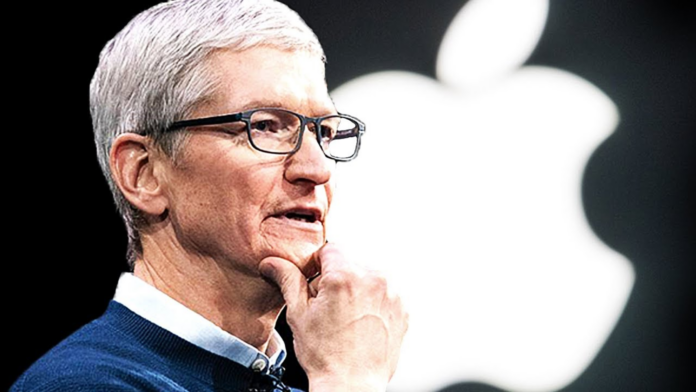At the helm of the tech giant’s recent Q4 earnings call, Apple’s CEO Tim Cook shared a glimpse into the company’s future, dispelling the myth that Apple is trailing in the AI space. Instead, Cook shone a light on the integral role AI plays in Apple’s technological advancements, emphasizing the upcoming features in iOS 17 like Personal Voice and Live Voicemail—both shining examples of Apple’s innovation prowess in AI.
Cook’s commentary reveals Apple’s approach to AI as subtle yet impactful. The company’s ethos seems to be to prioritize user experience over buzzwords. “We label them for their consumer benefit,” Cook stated, underscoring that, while not overtly branded as “AI,” these features are deeply rooted in AI and machine learning technologies.
Take Personal Voice, which stands as a testament to Apple’s commitment to accessibility. Designed for individuals who are at risk of losing their ability to speak due to health issues, this feature allows users to create a synthesized version of their own voice by simply recording themselves reading text prompts. The iPhone, iPad, or Mac then uses machine learning to process the audio, crafting a personalized voice replica.
Live Voicemail is another user-centric innovation set to debut with iOS 17. This feature provides a real-time transcription of voicemails as they’re being recorded—an addition that could redefine voicemail utility.
“These lifesaving features on our watch and phone, like fall detection, crash detection, ECG—are not conceivable without AI,” Cook explained to investors.
Further exciting news from the call was Cook’s confirmation that Apple is actively exploring generative AI technologies. While details remained under wraps, Cook’s message was clear: significant investments are underway, and these will be channeled into developing products responsibly, with AI at their core.
Despite Apple’s impressive strides, the landscape of consumer-facing AI technologies is competitive, with other tech behemoths rolling out tools that capture the public’s imagination. However, Apple is far from complacent. Reports suggest that the company’s AI investment is scaling rapidly, aiming to enhance Siri’s capabilities to perform more complex tasks autonomously—beyond the current limitations of the Shortcuts app.
Expectations are also high for the next iteration of iOS, anticipated to bring more sophisticated AI integrations. Enhancements to Siri and the Messages app, akin to Gmail’s autocomplete feature, are on the horizon. Plus, there’s buzz around generative AI making its way into Apple’s developer tools, such as Xcode, hinting at more personalized and intelligent app development.
What stands out from Cook’s address is Apple’s unwavering vision: to weave AI seamlessly into the fabric of the user experience, making technology not only advanced but also inherently human. It’s about more than just giving your device commands; it’s about fostering an intuitive interaction where the technology knows you, understands you, and anticipates your needs.
Apple’s roadmap is set to revolutionize our interactions with our devices yet again, reinforcing the notion that the future of AI is not only about machines learning but also about them empathizing and personalizing. This commitment from Apple suggests a horizon where technology is a natural extension of the user, promising a future that is both exciting and profoundly transformative.
In essence, Cook’s message to investors and consumers alike is one of reassurance and anticipation: Apple’s AI voyage is on course, charting new territories with the user’s benefit at its heart. With Cook at the helm, the tech giant is not just participating in the AI revolution; it’s shaping it.











